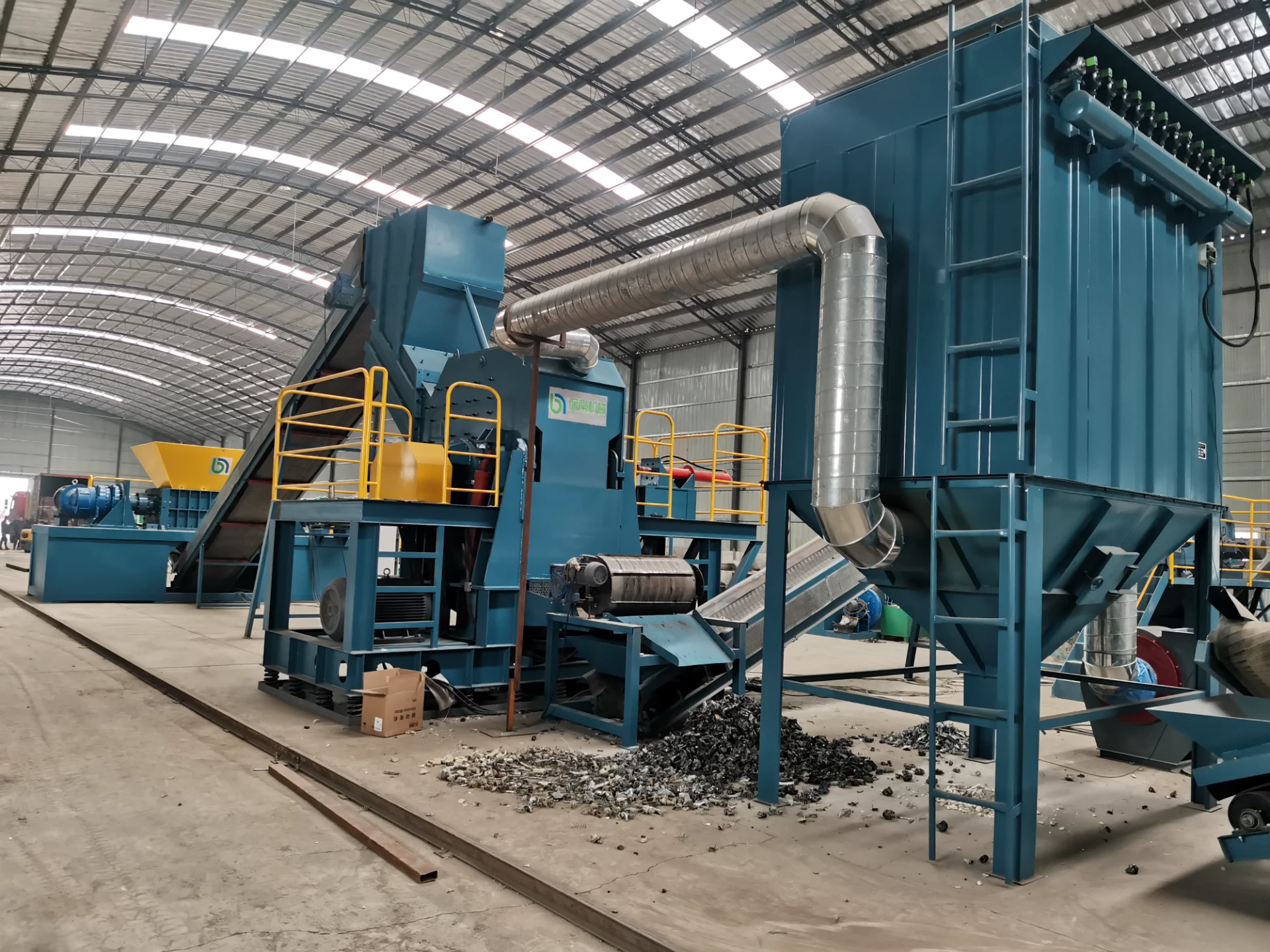

វិច្ឆិកា . 06, 2024 03:24 Back to list
The Importance of Scrap Processing Plants
In today's world, where sustainability and resource efficiency are paramount, scrap processing plants play a crucial role in the recycling and reuse of materials. As industries generate vast amounts of waste, these facilities serve as essential components in managing and reducing environmental impact while also contributing to the economy.
What is a Scrap Processing Plant?
A scrap processing plant is a facility designed to collect, process, and recycle scrap materials—such as metals, plastics, rubber, and other discarded materials. These plants typically operate by receiving unwanted materials from various sources, including manufacturing industries, construction companies, and even individual consumers. Once the materials are gathered, they undergo various processes to extract valuable resources, which can then be sold back into the market.
The primary goal of a scrap processing plant is to recover usable materials and minimize waste. This not only conserves natural resources but also helps reduce the carbon footprint associated with the extraction and processing of virgin materials. For instance, recycling metal requires significantly less energy compared to producing new metal from raw ore, making scrap processing a more environmentally friendly alternative.
The Process of Scrap Processing
The process of scrap processing begins with collection and sorting. Scrap materials arrive at the facility, where they are visually inspected and categorized based on their composition. Metals, plastics, paper, and electronic waste may require different handling and processing techniques. Advanced sorting technologies, including magnetic separators and shredders, aid in efficiently separating the various materials.
Once sorted, the next step involves processing the scrap. For metals, this might include shredding, baling, or melting down the materials to create ingots or pellets. These forms of processed material can then be sold to manufacturers for the production of new products. For other materials, such as plastics, they may be washed, melted, and extruded into new shapes and forms.
Environmental Benefits

Scrap processing plants contribute significantly to environmental conservation. By recycling materials, these facilities help reduce the need for landfills, which can be detrimental to ecosystems. Landfills often produce harmful emissions and leach toxic substances into the ground and water sources. Additionally, by substituting recycled materials for virgin ones, scrap processing can help reduce pollution associated with mining and manufacturing activities.
Moreover, these plants contribute to energy savings. Recycling often requires less energy compared to producing items from raw materials. For example, processing recycled aluminum uses about 95% less energy than producing new aluminum from bauxite. This leads to lower greenhouse gas emissions and helps combat climate change.
Economic Impact
Beyond environmental benefits, scrap processing plants also provide economic advantages. They create local jobs ranging from plant workers to administrative roles, contributing to the regional economy. The demand for recycled materials is growing, driven by both economic factors and increasing regulatory pressures on industries to adopt sustainable practices.
Additionally, these facilities support the circular economy concept, where materials are reused and recycled, minimizing waste. This system fosters innovation by encouraging industries to design products that are easier to recycle and promote responsible consumption patterns among consumers. Businesses are increasingly recognizing the value of sustainable practices, which can lead to competitive advantages in the market.
Challenges in Scrap Processing
Despite their benefits, scrap processing plants face several challenges. Fluctuating commodity prices can impact profitability, as the value of recycled materials may vary widely. Additionally, the quality of the incoming scrap can significantly affect the processing capabilities and end-product quality. Facilities must invest in technology and training to effectively address these challenges and enhance their operational efficiency.
Conclusion
In summary, scrap processing plants are essential for promoting sustainability and reducing waste in our modern economy. They serve as a bridge between discarded materials and new products, conserving resources and energy while supporting local economies. As society continues to embrace the principles of recycling and sustainability, the importance of scrap processing plants will only continue to grow, making them integral to our environmental and economic future.
Latest news
Troubleshooting Common Eddy Separator Problems
NewsJul.04,2025
The Role of Metal Recycling Plants in Circular Economy
NewsJul.04,2025
The Impact of Recycling Line Pickers on Waste Management Costs
NewsJul.04,2025
Safety Features Every Metal Shredder Should Have
NewsJul.04,2025
How Industrial Shredders Improve Waste Management Systems
NewsJul.04,2025
How Cable Granulators Contribute to Sustainable Recycling
NewsJul.04,2025